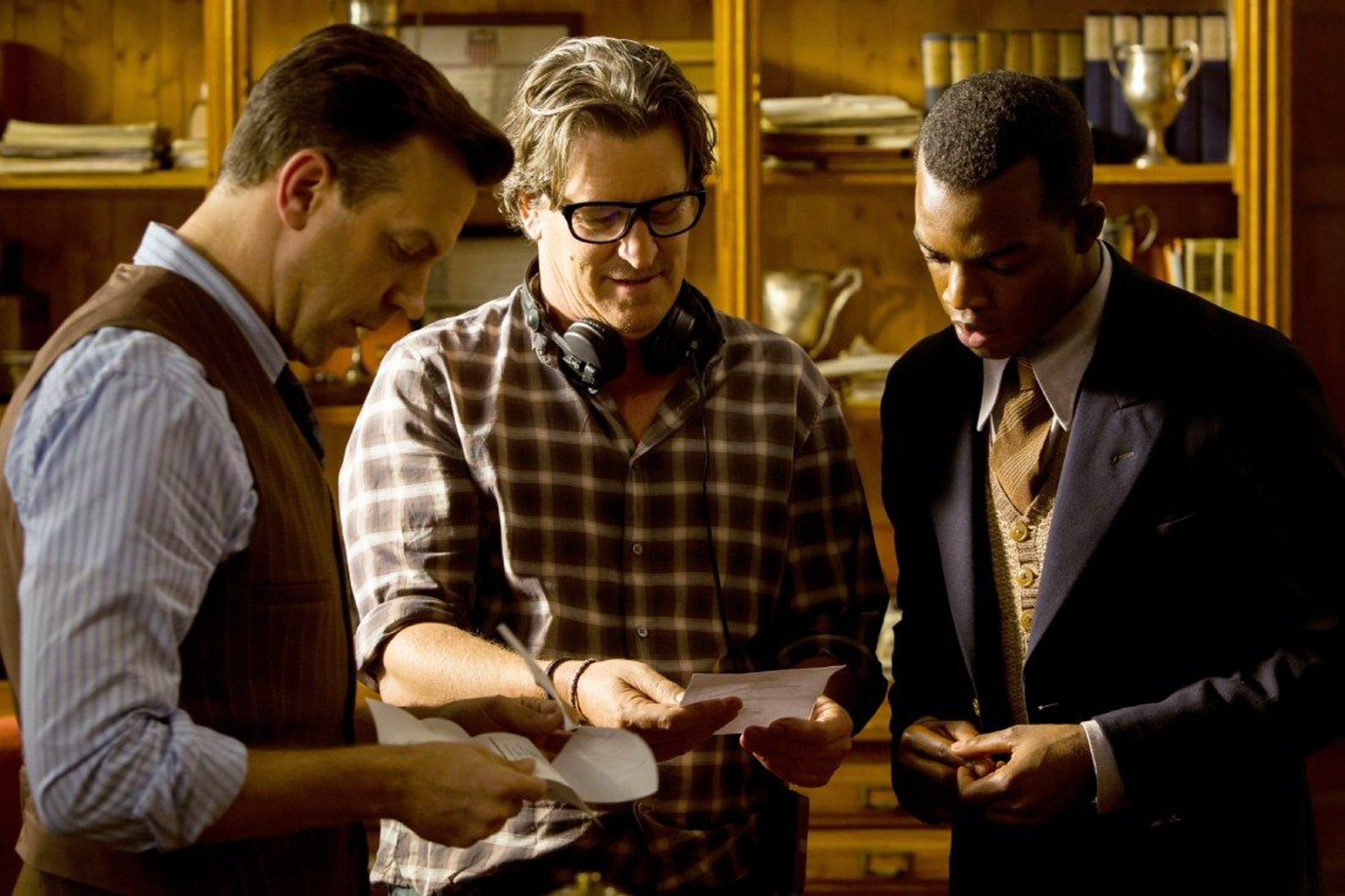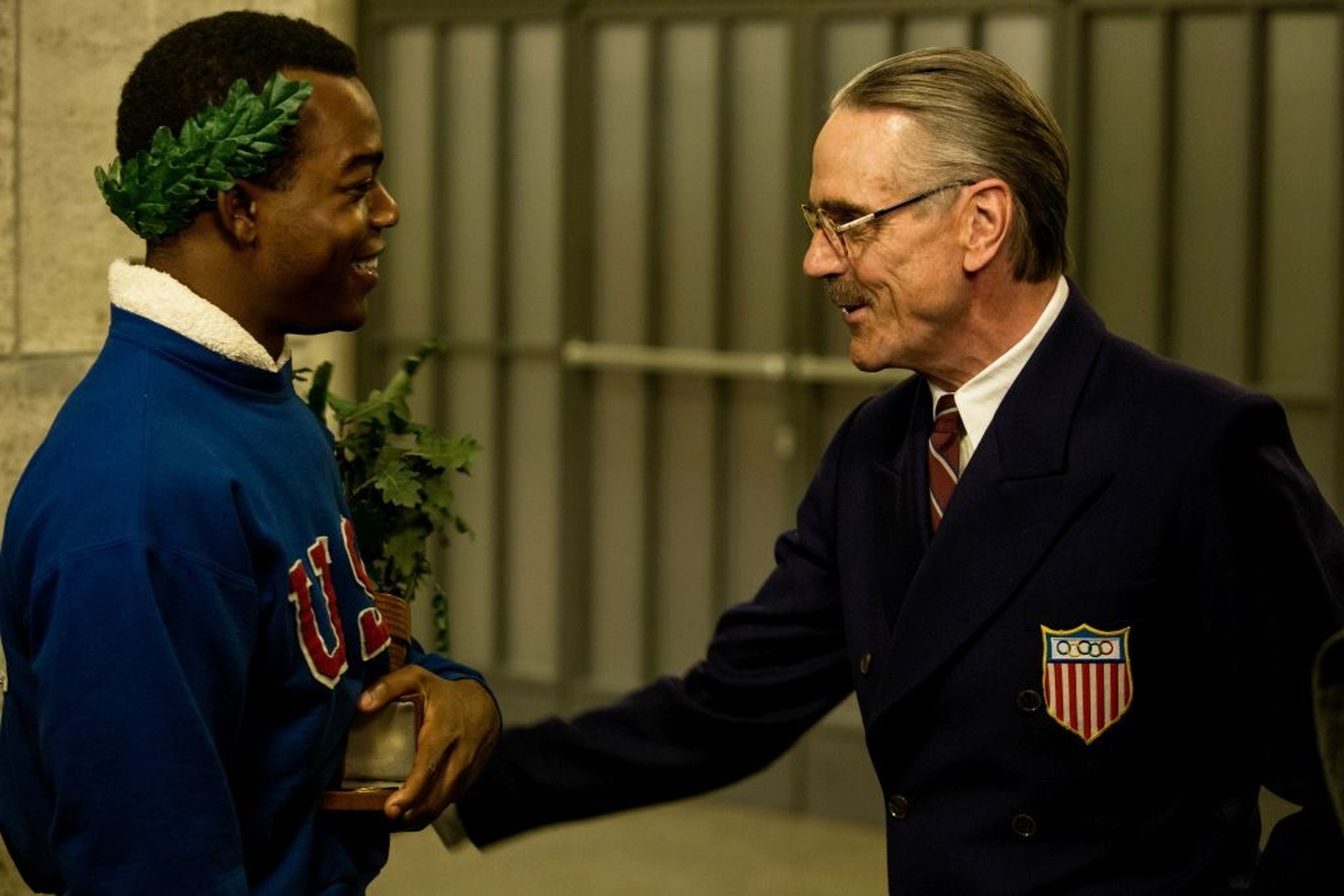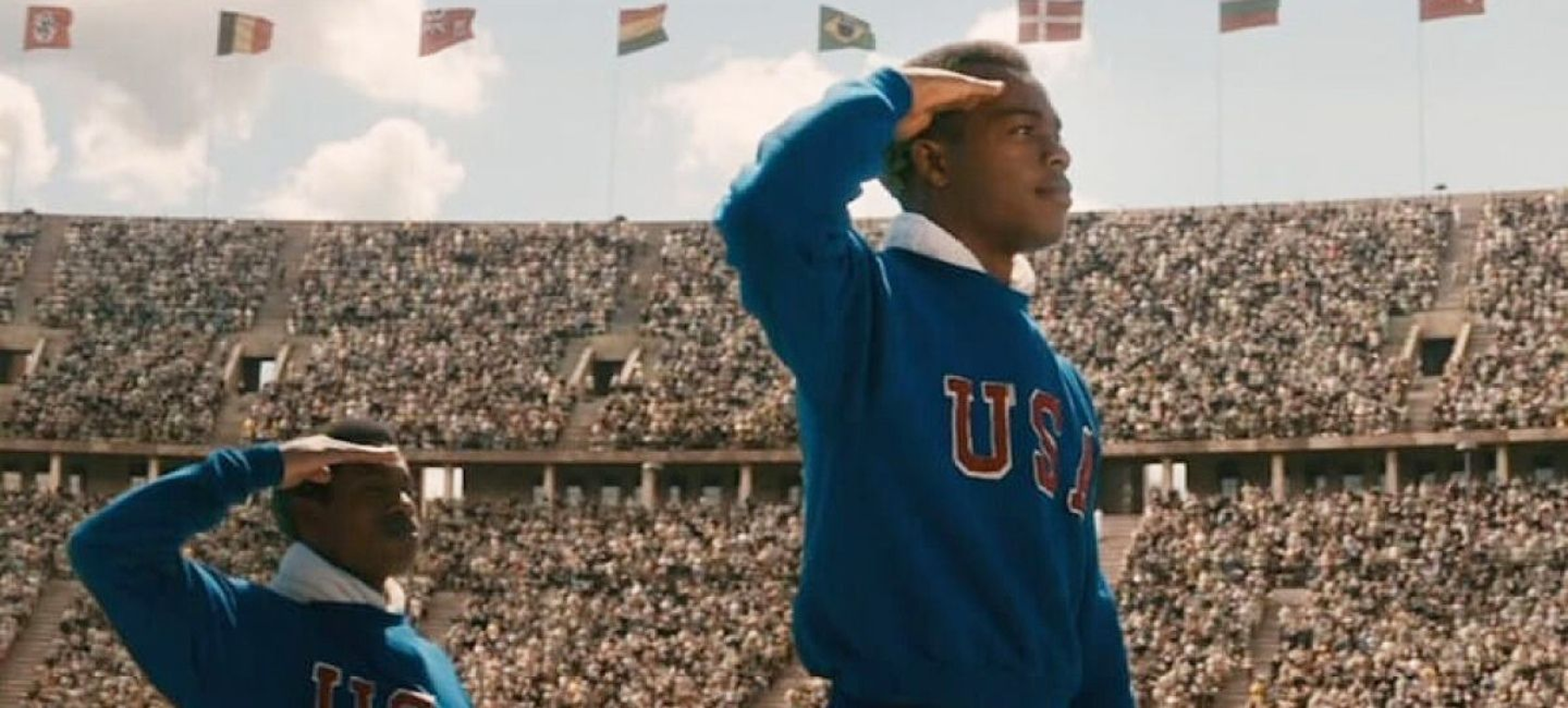In 2016, Stephen Hopkins’ Race, the first feature film about the legendary Olympic runner Jesse Owens, was released in theaters. Race looks beyond the applause and awards to the complicated journey this African American athlete navigated due to the political and social limitations of his time. The same challenges were encountered in telling his story. Many suspect that Owens’ story—an inspiring tale of a poor athlete who won four Gold medals at the 1936 Berlin Olympics, while snubbing Hitler—would have been a classic Hollywood story, if the hero wasn’t African American. For Black History Month this year, we are showcasing how Focus films both brought to the screen remarkable people in African American history and made history themselves by getting those stories told. This week, we look at the story of Jesse Owens in Race.
Watch Race now on iTunes or Amazon.
Setting the Stage Featurette for Race.

Jason Sudeikis, Stephen Hopkins, and Stephan James on the set of Race.
In 1991, producer Luc Dayan first hit upon the idea of a film about the celebrated athlete. After making his award-winning short film, “Tribute to Jesse Owens and Carl Lewis,” Dayan pushed forward to develop a feature film. While focusing on a short period of Owens’ life—from when his running career began at Ohio State University through to the 1936 Olympics—the screenwriters, Joe Shrapnel and Anna Waterhouse, sought to bring out the historical breadth of Owen’s tale. “In order for the audience to appreciate the enormity of Owens’ accomplishments—the scale and importance of his victories — we had to give them background and history,” explains Shrapnel.
Made with the cooperation of the Jesse Owens Foundation and the Owens family, the film showcases the messy reality of Owen’s situation. (HistoryVsHollywood identifies that nearly every event in the film is factual.) While he pursued his destiny as a world-class athlete, others tried to co-opt his fame for their own ends. “He’s in the middle of the most extraordinary time in 20th-century politics,” explains Hopkins. The former president of the Amateur Athletic Union (AAU), Judge Jeremiah Mahoney (William Hurt), for example, pushed him to boycott Hitler’s Olympics on moral grounds, while his successor, the self-serving industrialist, Avery Brundage (Jeremy Irons), demanded he compete to provide a hero for other Americans.

Stephan James and Jeremy Irons in Race.
In the end, while no one could diminish Owens’ historic athletic achievements, the America of his time often failed to acknowledge him as a citizen. America Magazine points out, “neither Hitler nor Franklin Roosevelt ever shook Owens’s hand; and, as the film shows, Olympic gold had no influence on what doors Owens was allowed to walk through when he got home to solidly racist America.” Nor did Hollywood rush to memorialize his achievements. As NPR points out, “It would be decades before Owens was invited to the White House, and decades more for this engrossing film to get out the word.”
